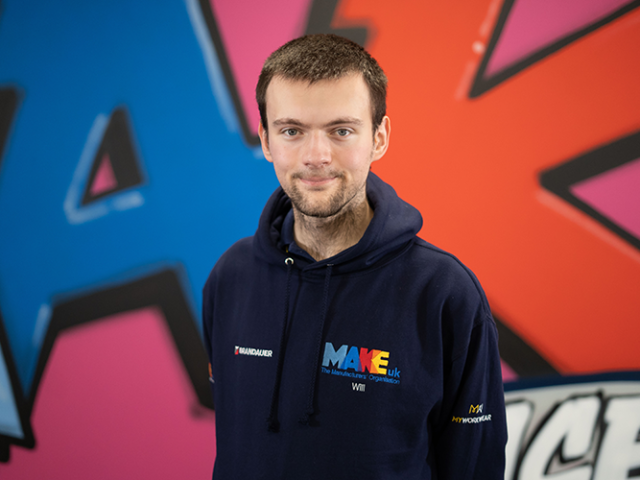Quantum computing is on the brink of revolutionising how businesses tackle complex issues, however, the quantum skills gap remains a concern. The technological advancements necessary for this breakthrough are fast becoming a reality, with major developers like IBM making significant strides in constructing quantum-centric supercomputers. Despite the diminishing technological barriers, a more pressing challenge persists: the scarcity of quantum skills in the job market.
A survey conducted last year by Classiq, involving over 500 professionals acquainted with quantum technology, unveiled potential benefits of quantum computing. These include cost reductions, new revenue opportunities, and competitive edges for firms adept in its deployment. However, the survey also underscored a critical hurdle – a dearth of engineers and scientists skilled in programming quantum computers, impeding broader implementation of quantum technology.
This skills shortage not only hampers companies from harnessing quantum computing’s full potential but also triggers a fierce competition for the limited number of available quantum experts. What led to this widening skills gap, and how can companies address it?
Coding in the quantum computing era
Understanding the nature of the missing quantum skills is key. Many wonder why existing programmers and computer engineers aren’t filling this gap. Beyond the technical proficiency required for quantum computing, like crafting quantum circuits and software, there’s a knowledge gap in applying quantum computing to business solutions.
For example, programmers versed in classical computing might devise a portfolio optimisation program but may be clueless about achieving this on a quantum computer. They often lack the starting point, methods to validate their results, or the know-how to execute their code on quantum devices.
Quantum computing coding is inherently more complex than classical computing. As each “qubit” can simultaneously embody both one and zero, quantum coding demands an intricate approach. Developers need to grasp quantum principles like superpositions, necessitating novel problem-solving and operational methods.
This challenge is compounded by a technological gap. Quantum programming hasn’t reached the abstracted levels of classical programming; it’s largely still at the assembly language stage. Writing extensive quantum programs is currently a formidable task.
Bridging the quantum skills gap
Companies eager to leverage quantum technology might initially seek to hire skilled professionals. However, the market lacks a sufficient number of PhD-trained quantum experts, resulting in intense competition for quantum-trained graduates. In light of this scarcity, companies should focus on training and upskilling their current workforce.
Encouraging existing staff to undergo this training should be straightforward. Engineers and programmers, as our survey indicated, are eager to learn – nearly 95% expressed interest in quantum training. This enthusiasm stems not just from the allure of new technology but also from aspirations to secure their career futures and potentially boost earnings through quantum proficiency.
Upskilling doesn’t have to be costly. An abundance of open-source materials, like the Qiskit development kit, are available to aid in exploring this new field. A practical approach for companies is to allocate time and resources for their engineers to self-educate about quantum computing. Allowing current coders to learn about this technology and its potential business benefits could be a lucrative long-term investment.
An added benefit of training your existing staff, as opposed to hiring quantum PhD graduates, is their existing familiarity with your business’s specific problem-solving needs.
Moreover, emerging products are addressing the technology gap, simplifying quantum coding for newcomers. Advanced low-code software can reduce the complexity of quantum coding, accelerating the learning curve.
Positioning students for the quantum computing path
For students aspiring to enter this burgeoning field, positioning themselves for success involves a multi-faceted approach. Firstly, students should seek educational opportunities that offer a foundational understanding of quantum mechanics and computing. This could include university courses, online learning platforms, and practical workshops.
Hands-on experience is crucial. Students should engage in projects and internships that offer exposure to quantum computing applications. Collaborating on real-world problems can provide invaluable insights into the practicalities and challenges of quantum computing.
Networking and participating in quantum computing communities and forums can also provide students with the latest industry trends, mentorship opportunities, and potential collaborations. Keeping abreast of the latest developments through journals, conferences, and seminars is equally important.
Lastly, developing complementary skills such as data analysis, programming in languages like Python, and a strong grasp of mathematical concepts will make students more versatile and prepared for a career in quantum computing.
As quantum computing’s horizon draws closer, companies and aspiring professionals alike must ready themselves for its impact. For students, this means immersing themselves in a field that’s not only technologically advanced but also rich in potential for reshaping future business landscapes. By building a solid foundation in quantum principles and actively seeking opportunities to apply these skills, students can position themselves at the forefront of this transformative era.
The quantum revolution may be a few years away, but its preparation starts now. Companies and future professionals must gear up with the necessary skills and infrastructure to embrace this technology, lest they fall behind in a quantum-prepared world. For students, this is an opportunity to be part of an exciting and pioneering field that promises not just career growth but also a chance to be at the cutting edge of technological innovation, you can be the person that fills the quantum skills gap.




